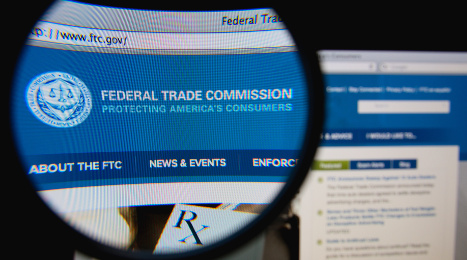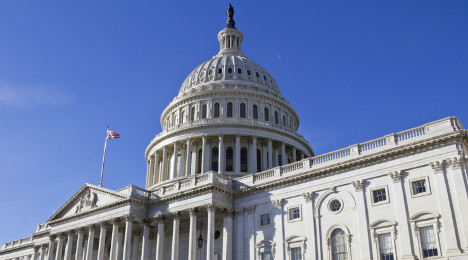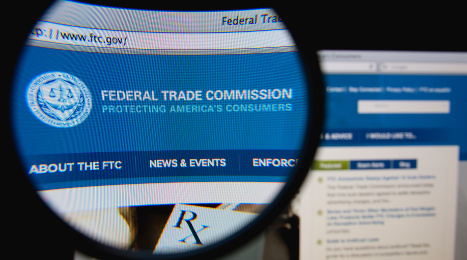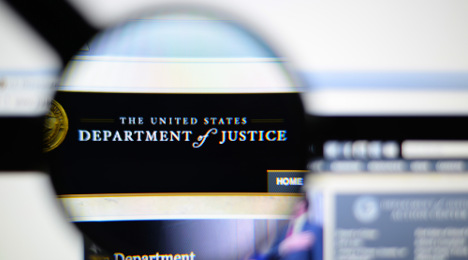Patty Covington cautioned me beforehand that the opening module of the National Automotive Finance Association’s Consumer Credit Compliance Certification Program would be like drinking from a firehose. Well, she didn’t exaggerate.
However, the way she and fellow instructor Eric Johnson delivered the material left me and the rest of the more than 100 students thirsty for more.
We all gathered this past week in Plano, Texas, for the program’s first in-person segment, delving into hundreds of pages of regulatory material accompanied by dozens of links to online sources. The Equal Opportunity Credit Act. The Gramm-Leach-Bliley Act. The Fair Credit Reporting Act. The instructors and Hudson Cook partners easily could have spent the two days we had together focused on just one of those topics. But we all know federal agencies have many tools in their regulatory chest, so the introductions to these rules had to be brisk.
Then there are all the acronyms. For example, UDAP and UDAAP. One letter makes a profound difference in creating “unfair and deceptive acts and practices” as well as “unfair, deceptive and ABUSIVE acts and practices.”
And missteps in those areas can cost your finance company thousands of dollars in fines, if not more. Use the search box on our website and enter the term “consent decree” to find out what kind of actions agencies such as the Consumer Financial Protection Bureau and the Federal Trade Commission have taken.
Oh yes, there are state regulators, too. They bring along statutes with definitions that can vary as much as the landscape in New Mexico versus Maine.
So when the NAF Association or industry partners such as we here at SubPrime Auto Finance News often repeat the importance of maintaining compliance, it’s not because we don’t have any other matters to discuss. It’s about maintaining survival.
Patty and Eric didn’t sugarcoat the current compliance landscape to our class, which included employees of finance companies and service providers as well as attorneys looking for continuing education and buy-here, pay-here dealers seeking information. They took a straightforward approach, summarizing information nicely while keeping attendees engaged.
In the coming days, I and the rest of the class must complete and pass the first-module exam with a score that’s much higher than the average year-round temperature in San Diego. Then two more online segments are to follow before the final segment that’s also a face-to-face time. Later this fall, the NAF Association hosts its next in-person module, which happens to coincide with Used Car Week at the Red Rock Resort and Casino in Las Vegas on Nov. 14-18.
Program students who are in town to complete the NAF Association compliance program also will receive complimentary registration for the SubPrime Forum, which is our industry gathering for finance company executives to discuss trends, best practices and more.
For industry managers who are unsure if the investment in this compliance program is worth it, let me offer this consideration. If a regulator determines your company KNOWINGLY disobeyed certain acts or perhaps was abusive to a customer, the penalty can surpass $1 million per INCIDENT. How many active accounts are in your portfolio? I can assure you the cost of the NAF Association’s program is a fraction of that potential figure.
The NAF Association is likely to host another opening module for industry professionals who missed last week’s opportunity. Contact the association through its website at www.nafassociation.com for more details.
For now, I have plenty of studying to do.
Nick Zulovich is the senior editor of SubPrime Auto Finance News and is sharing updates about his journey to through the NAF Association’s Consumer Credit Compliance Certification Program. He can be reached at [email protected].
The Federal Trade Commission recently issued a second Federal Register Notice (FRN) on a proposed qualitative survey of consumers to learn about their experiences in buying and financing vehicles at dealerships, and is seeking clearance from the Office of Management and Budget to conduct the study.
FTC officials explained the second FRN also calls for additional public comments as required by the Paperwork Reduction Act.
The proposed consumer survey, which will include consumer interviews and receipt of consumers’ purchase and finance documents, is designed to assist the FTC by providing useful insights into consumer understanding of the automobile purchasing and financing process at the dealership.
Last December, the FTC issued a Federal Register Notice seeking public comment on the proposed survey. The FTC received 17 comments in response to that notice that are addressed in the second FRN.
The FTC now invites further comments concerning the accuracy of burden estimates on surveyed consumers and ways to minimize the information collection burden.
When the FTC first began this process, the American Financial Services Association and the Consumer Bankers Association submitted a letter to the agency asking seven specific questions about what the regulator plans to do.
Stemming from concerns that there may be an element of bias in the survey that the FTC is proposing, AFSA executive vice president Bill Himpler and CBA regulatory counsel Kate Larson authored the letter that touched on what the organizations described as “the importance of objectivity” as well as “separating research and enforcement.”
In a moved cheered by a wide array of organizations including the Consumer Bankers Association and the Independent Community Bankers of America, the U.S. House Financial Services Committee passed what Republican lawmakers are touting as an alternative to the Dodd-Frank Act.
The Financial CHOICE Act moved forward by a partisan vote of 30-26 on Tuesday, generating opposite reactions from lawmakers on either side of the aisle. Financial Services Committee chairman and sponsor of the bill Jeb Hensarling said, “Democrats just voted against a bill that increases penalties against those who commit financial fraud.
“They just voted against a bill that ends taxpayer-funded bailouts, and they just voted against legislation that provides relief from Washington’s crushing regulatory burden for small banks, credit unions and consumers,” continued Hensarling, a Texas Republican who spelled out the measure earlier this summer.
“The bill holds Wall Street accountable with the toughest, strongest, strictest penalties ever — far greater than those in Dodd-Frank,” Hensarling went on to say. “And as recent headlines attest, obviously stronger penalties are needed. It requires banks to be well capitalized to prevent another financial crisis and puts in place the toughest penalties in history to protect consumers from fraud and deception.
Meanwhile, the committee’s ranking member, Rep. Maxine Waters of California, chastised Republicans for how the measure moved ahead.
“This bill is so bad that it simply cannot be fixed. This markup is not a serious attempt to move thoughtful legislation, evidenced by the fact that we only had one hearing on one portion of the bill,” Waters said.
“It’s clear that this is a rushed, partisan messaging tool, though why anyone would want to push legislation to deregulate Wall Street at a time like this is beyond me,” she added.
Despite what lawmakers volleyed at each other, industry representatives whose interests can include auto financing applauded this week’s actions.
“CBA welcomes the House Financial Services Committee’s efforts in reforming Dodd-Frank. Consumers will benefit greatly from the creation of a five-person, bipartisan board at the CFPB, which will preserve the bureau as a strong, stable and effective regulator, regardless of a President Trump or Clinton,” said Richard Hunt, who is the Consumer Bankers Association’s president and chief executive officer.
“Additionally, the repeal of the Durbin Amendment, which has limited consumer access to many affordable banking products and services through a mandated price control, is a major win for consumers,” Hunt continued.
Independent Community Bankers of America president and CEO Camden Fine took a similar position regarding committee passage of the Financial CHOICE Act.
“ICBA congratulates the House Financial Services Committee for advancing the Financial CHOICE Act. Chairman Jeb Hensarling’s bill is an important source of meaningful regulatory relief that will help community banks foster economic and job growth in their local communities,” Fine said.
“The Financial CHOICE Act includes many common-sense provisions from ICBA’s Plan for Prosperity platform to reform community bank overregulation and enhance our economy,” Fine continued. “These provisions include a repeal of Durbin Amendment price controls on debit card interchange, common-sense reforms to excessively burdensome mortgage-lending rules, and relief from unnecessary call report and data-collection requirements.
“ICBA looks forward to continuing to work with chairman Hensarling and other members of Congress to advance much-needed and robust regulatory relief that will benefit the nation’s consumers and economy,” Fine went on to say.
Other organizations that welcomed the House action included the U.S. Chamber of Commerce, Americans for Prosperity, Small Business Investor Alliance, Small Business & Entrepreneurship Council and the Mid-Size Bank Coalition of America.
As the regulator handed out a $100 million penalty to Wells Fargo for activities not related to auto financing, the Consumer Financial Protection Bureau noted that the amount of complaints in its database continues to surge toward 1 million entries.
As of Aug. 1, the bureau reported that it has handled approximately 954,400 total complaints across all products. When SubPrime Auto Finance News dug into the CFPB’s searchable complaint database to get a sense of auto financing status, we found statistics that might give finance company executives some assurance about their performance.
The searchable database — which often contains consumer comments as well as the particular company connected to the complaint — has a total of 627,536 entries dating back to Dec. 1, 2011. When selecting auto as a subcategory, the database shows just 16,886 entries, which include both complaints from consumers who currently have a vehicle installment contract or lease as well as issues associated with debt collections in the auto space.
So after doing some quick arithmetic, the auto finance space constitutes just 2.69 percent of the complaints in the CFPB’s searchable database.
For comparison, the CFPB’s latest complaint database update highlighted the bureau’s data involving bank accounts and services. As of Aug. 1, the bureau said it had handled approximately 94,200 bank account or service complaints. That ratio comes in at 9.87 percent.
The CFPB indicated that what triggers the most complaints from consumers about their bank includes issues such as trouble opening accounts, problems with overdraft fees and availability of funds and frustration about financial institutions’ error resolution procedures.
“Deposit accounts are an essential component of millions of consumers’ financial lives,” CFPB director Richard Cordray said. “We are concerned that consumers continue to face difficulties accessing and managing this cornerstone financial tool.
“Consumers who are eligible for a deposit account should be able to get one and use it effectively,” continued Cordray, who pointed out that Bank of America, JPMorgan Chase, Wells Fargo and Citibank were the four companies about which the CFPB has received the most bank account or service related complaints.
CFPB’s action against Wells Fargo
And speaking of Wells Fargo, this week the CFPB fined the bank $100 million for what the regulator deemed to be “widespread illegal practice of secretly opening unauthorized deposit and credit card accounts.”
Spurred by sales targets and compensation incentives, the bureau said employees boosted sales figures by “covertly” opening accounts and funding them by transferring funds from consumers’ authorized accounts without their knowledge or consent, often racking up fees or other charges.
According to the bank’s own analysis, the CFPB found employees opened more than 2 million deposit and credit card accounts that may not have been authorized by consumers.
Officials said Wells Fargo will pay full restitution to all victims and a $100 million fine to the CFPB’s Civil Penalty Fund. The bank will also pay an additional $35 million penalty to the Office of the Comptroller of the Currency, and another $50 million to the City and County of Los Angeles.
“Wells Fargo employees secretly opened unauthorized accounts to hit sales targets and receive bonuses,” Cordray said. “Because of the severity of these violations, Wells Fargo is paying the largest penalty the CFPB has ever imposed.
“Today’s action should serve notice to the entire industry that financial incentive programs, if not monitored carefully, carry serious risks that can have serious legal consequences,” he added.
In response, Wells Fargo insisted that its commitment to addressing the concerns covered by agreements with regulators included:
—An extensive review by a third party consulting firm going back into 2011, which was completed prior to these settlements. The review included consumer and small business retail banking deposit accounts and unsecured credit cards opened during the period reviewed.
—As a result of this review, $2.6 million has been refunded to customers for any fees associated with products customers received that they may not have requested. The bank said accounts refunded represented a fraction of 1 percent of the accounts reviewed, and refunds averaged $25.
—Disciplinary actions, including terminations of managers and team members who acted counter to values.
—Investments in enhanced team-member training and monitoring and controls.
—Strengthened performance measures that are tied to customer satisfaction, loyalty and ethics.
Sending customers a confirming email within one hour of opening any deposit account, and sending an application acknowledgement and decision status letter after submitting an application for a credit card.
“Wells Fargo reached these agreements consistent with our commitment to customers and in the interest of putting this matter behind us. Wells Fargo is committed to putting our customers’ interests first 100 percent of the time, and we regret and take responsibility for any instances where customers may have received a product that they did not request,” the company said.
“Our entire culture is centered on doing what is right for our customers. However, at Wells Fargo, when we make mistakes, we are open about it, we take responsibility, and we take action. Today’s agreements are consistent with these beliefs,” the company went on to say.
More action on Capitol Hill
As lawmakers get back to work following the annual summer recess, U.S. House Financial Services Committee Chairman Jeb Hensarling, a Texas Republican, announced that the committee will begin meeting on Tuesday to debate the Financial CHOICE Act, consider possible amendments and vote on the legislation.
Earlier this summer, Hensarling unveiled the Financial CHOICE Act, what’s being dubbed the Republican alternative to the Dodd-Frank Act, which created the CFPB.
As highlighted in this previous report from SubPrime Auto Finance News, Hensarling stressed his proposal “will end taxpayer-funded bailouts of large financial institutions, relieve banks that elect to be strongly capitalized from growth-strangling regulation that slows the economy and harms consumers, impose tougher penalties on those who commit financial fraud and demand greater accountability from Washington regulators.”
The American Action Forum (AAF) shared analysis this week that might provide more tangible evidence to fuel opponents of the Consumer Financial Protection Bureau.
AAF, which claims to be an independent, nonprofit organization not affiliated with or controlled by any political group, found that CFPB rulemakings have moved 3.5 times faster than regulations from cabinet agencies.
According to commentary compiled by AAF director of regulatory policy Sam Batkins, “More troubling is the amount of public notice for some of these rules. In 18 instances, a final rule was published before it had been released in the Unified Agenda, amounting to 36 percent of the agency’s rulemaking slate.
“For critics of CFPB who had concerns about the agency’s rulemaking authority and accountability, its pace should offer a fresh set of issues,” Batkins added.
Based on the most recent Unified Agenda of Federal Regulations, Batkins determined the bureau has finalized 49 rules. But he noticed just 26 of those measures have imposed $2.8 billion in costs with an associated 16.9 million paperwork burden hours.
“For perspective, it would take 8,450 employees working full time (2,000 hours) to complete the agency’s new recordkeeping and reporting requirements,” Batkins said.
AAF’s analysis showed the average CFPB rule takes just 197 days to complete — from initial publication in the Unified Agenda to final publication in the Federal Register. The organization indicated the median time is even shorter at just 114 days.
“Although some claim that CFPB rules are actually taking too long to complete, these analyses have proven to be rather arbitrary; adding 90 days to these figures only raises the average to 287 days and the median to 204 days, still well less than a year for the rulemaking life,” Batkins said.
Although agencies likely begin work on rules before entry in the Unified Agenda, Batkins pointed out regulators are also likely to conclude work before official publication in the Federal Register.
The American Action Forum has documented the phenomenon of publication delay in the past: Agencies finish a rulemaking and publish a version online, but Federal Register publication, through the public inspection docket or otherwise, can sometimes lag for up to six months.
Batkins mentioned some CFPB rules wait up to 41 days for formal publication. “Even with these bureaucratic publication delays, the average CFPB rule still moves far faster than the average cabinet agency rulemaking,” he said.
U.S. Government Accountability Office records show just seven major CFPB rulemakings and the connected averages that are lengthier than the total sample AAF reviewed. Batkins stressed that group was “hardly proceeding at a snail’s pace: 326 days.” He computed the median time is higher at 408 days.
“However, one of these major rules — Operations in Rural Areas Under the Truth in Lending Act — was released 53 days before initial publication in the Federal Register,” Batkins said. “It was issued without a proposed rule to allow the public and members of Congress to comment.”
What might be most noteworthy to auto finance companies and CFPB opponents is the rate of regulatory errors the bureau might be generating.
“These relatively short rulemaking timelines have generated a fair share of mistakes,” said Batkins, who found that the CFPB has had to issue 13 corrections, comprising 57 pages in the Federal Register.
“This amounts to an ‘error rate’ in the agency’s regulatory slate of roughly 25 percent,” he continued. “Three of these rules that later required corrections were published as final rules in the Federal Register before official publication in the Unified Agenda, one by 121 days.
“In fact, of the 49 rules included in the sample, 18 (or 36 percent of the total) were published as final rules before the public learned of them in the Unified Agenda,” he added. “In one instance, CFPB published a final rule more than 411 days before notice in the agenda.
“With all deference to the agency, excluding these ‘premature’ rulemakings still yields an average length of 376 days, well ahead of the average economically significant rulemaking from a cabinet-level agency,” Batkins went on to say.
Batkins’ original online post can be found here.
Reynolds and Reynolds recently released the Reynolds LAW F&I Library to help dealerships in three more states.
The comprehensive catalog of standardized, legally reviewed finance and insurance (F&I) documents now can be used by dealers throughout Wyoming, Hawaii and Indiana.
“Dealers will continue to face growing expectations from consumers for a more engaging and smoother car-buying experience,” said Jerry Kirwan, senior vice president and general manager of Reynolds Document Services.
Using standard documents written in consumer-friendly language can help to create a clearer, more consistent, and more efficient F&I process for the F&I manager and for the consumer,” Kirwan continued. “And, because of those improvements to the overall F&I process, the overall consumer experience with the dealership can be improved.”
Kirwan also noted that because regulatory scrutiny is an ongoing concern for dealers, the LAW F&I Library is a tool to help dealers meet compliance obligations and manage risk. The documents in the library are regularly reviewed for legal sufficiency with the latest automotive regulations by Reynolds' industry-leading forms specialists alongside Reynolds' outside legal partners.
The printed documents in the LAW F&I Library also are available in a digital format, which can help facilitate the conversion to laser-printed transactions and e-contracting. Reynolds Document Services maintains licensing agreements with all major providers of electronic F&I (e-F&I) solutions.
Now along with Wyoming, Hawaii and Indiana, Reynolds has libraries for:
— Alabama
— Arizona
— Arkansas
— California
— Colorado
— Idaho
— Illinois
— Kentucky
— Louisiana
— Maryland
— Massachusetts
— Michigan
— New Jersey
— New Mexico
— North Carolina
— Ohio
— Oregon
— Pennsylvania
— Tennessee
— Texas
— Virginia
— Utah
— Washington
— West Virginia
As the American Financial Services Association scheduled an informational webinar with executive vice president Bill Himpler, organizers of the National Automotive Finance Association’s Consumer Credit Compliance Certification Program reminded potential participants about the upcoming deadline for discounted accommodations.
In an effort to help finance companies and other stakeholders in the industry tackle the increasingly difficult challenge of complying with federal and state regulatory requirements, the Certification Program is designed to provide the compliance professional with a solid working knowledge of the federal laws and regulations that govern consumer credit, together with a representative overview of state consumer credit law.
The program consists of four modules — two presented through an in-person classroom setting and two in an online format at the student’s own pace. Each module includes multiple sessions, and each session provides a thorough outline and description of the applicable law or regulation. Each session is followed by an online test that must be passed to receive credit for the session.
NAF Association officials are organizing another opening in-person module just as autumn arrives. The session is set for Sept. 22 and 23 at Dallas/Plano Marriott at Legacy Towne Center in Plano, Texas. NAF Association is taking reservations for that module here.
Discounted rooms are available, but reservations must be made by Thursday.
And the NAF Association is hosting the closing module at the same site as the SubPrime Forum and Used Car Week, the Red Rock Resort and Casino in Las Vegas on Nov. 14-18. Program participants who have completed the first three modules can register for the closing segment here.
AFSA webinar about future CFPB moves
Meanwhile, AFSA’s Himpler is hosting a webinar titled “What to expect from the Consumer Financial Protection Bureau.” It’s scheduled to begin at 2 p.m. EDT on Sept. 21.
Along with a Q&A section, Himpler plans to address four pressing issues during the webinar:
• What the Military Lending Act means to you.
• Interpreting the new CFPB rules on small-dollar lending.
• Do you need to be sending customer statements?
• Where will the CFPB go next?
Registration for the webinar can be completed here.
Evidently the Federal Trade Commission is far from finished with its regulatory actions involving what it dubbed Operation Steer Clear — a nationwide crackdown on misleading advertising regarding vehicle sales, financing and leasing that began more than two years ago.
This week, FTC officials said three Dallas-area dealers, collectively known as Southwest Kia, have agreed to pay an $85,000 civil penalty to settle charges that they violated an FTC administrative order barring them from deceptively advertising the cost of buying or leasing a vehicle.
According to the FTC, New World Auto Imports, New World Auto Imports of Rockwall and Hampton Two Auto Corp. concealed sale and lease terms that added significant costs or limited who could qualify for vehicles at advertised prices, in violation of a 2014 order.
In a TV ad, for example, the regulator found the dealers offered two vehicles for “under $200 per month.” But in fine print that appeared for two seconds, FTC officials said the ad disclosed that the offer applied only to leases, not sales, and required a $1,999 payment at lease signing.
FTC officials recounted that one dealer mailed ads claiming a new vehicle could be purchased for $179 per month, “but in print too small to read without magnification,” disclosed that $1,999 would be due up front, along with tax, title and license fees, and that $8,271 would be due at the end of a 38-month financing term.
The FTC’s complaint also cited a TV ad targeted at people with major credit problems such as repossessions or foreclosures.
Officials indicated the ad touted vehicles for $250 per month, but in fine print disclosed that the offer was based on a 4.25 annual percentage rate that “few, if any,” consumers with such major credit issues could obtain.
In addition, the FTC alleged that the dealers advertised credit and lease terms without clearly and conspicuously disclosing information required by federal law, and failed to keep records required by the 2014 order.
In addition to the $85,000 civil penalty, the proposed order prohibits the dealers, in any ad for buying, financing or leasing vehicles, from misrepresenting the cost of purchase with financing, the cost of leasing, or any other material fact about price, sale, financing or leasing. It also prohibits misrepresentations that anyone, including those with poor credit, is likely to receive financing or leasing, including particular finance or lease terms.
Officials added the proposed order also bars the dealers from violating the Truth in Lending Act and the Consumer Leasing Act, which require clear and conspicuous disclosure of credit and lease terms.
The FTC vote to authorize the staff to refer the complaint to the Department of Justice and to approve the proposed stipulated order was 3-0.
The DOJ filed the documents on behalf of the FTC in U.S. District Court for the District of Texas, Dallas Division, on Thursday.
Within the week that Brian Geitner was picked as the incoming president of Cox Automotive’s Media Solutions Group, the current president of NextGear Capital also gained a leadership role for the American Financial Services Association.
AFSA announced the election of three new members to its board of directors, selections that included Geitner as well as Jim Hill, president and chief executive officer of First Heritage Credit of Mississippi, as well as Martin Less, president and CEO of Nationwide Acceptance Corp.
Geitner has been president of the Financial Solutions Group at Cox Automotive since 2015. His first role with the company was as chief executive officer of Dealer Services Corp., a position he took in 2012. He eventually became president of NextGear Capital.
First Heritage Credit makes personal loans through a network of 73 branch offices in Alabama, Mississippi, Louisiana and Tennessee. Hill also serves on AFSA’s state installment lending subcommittee and the state government affairs committee.
Hill has been an active supporter of AFSA and frequently attends AFSA conferences and congressional fly-ins. He has served as president of the Louisiana Consumer Finance Association (LFA) and the Mississippi Consumer Finance Association (MCFA), and currently serves as the legislative chairman for the MCFA.
Under Less’ leadership, Nationwide has grown profitably from operating in four states and $54 million in net receivables to 25 states and approximately $140 million in net receivables today. Less is active in AFSA and currently serves on the vehicle finance board, the independents section board and the education foundation board. He served as chairman of the AFSA political action committee for 2015-16, was a founding member of the AFSA Education Foundation’s Endowment Fund and was one of the founding members of the independent auto executives group.
On a local level, Less has served in various senior officer positions in the Independent Finance Association of Illinois and is active in the Illinois Financial Services Association.
The Justice Department reached a settlement this week with a finance company that repossessed vehicles in violation of the Servicemembers Civil Relief Act (SCRA) — a discovery the DOJ made during an investigation of Santander Consumer USA for similar infractions that generated a $10.5 million settlement.
DOJ officials announced that HSBC Finance Corp., as successor to HSBC Auto Finance, has agreed to pay $434,500 to resolve allegations that it violated the SCRA by repossessing 75 vehicles owned by protected servicemembers without obtaining the necessary court orders.
The settlement is subject to approval by the U.S. District Court of the Northern District of Illinois.
During the investigation, the department learned that HSBC conducted repossessions without court orders even when it had evidence in its own records suggesting that a borrower could be a protected servicemember. In one such case, HSBC continued with a repossession after learning that an initial attempt was unsuccessful because guards would not allow the “repo truck” to enter a “secured military post” in Indiana where the vehicle was located.
Officials explained the settlement covers repossessions that occurred between 2008 and 2010. HSBC Auto Finance originated and serviced installment contracts until 2010, when HSBC sold its auto financing operations and assets to SCUSA.
In February of last year, the department entered a settlement with Santander that provides servicemembers with more than $10.5 million in compensation for repossessions that violated the SCRA. As part of the investigation of Santander’s repossession practices, the department learned that HSBC sold to SCUSA the right to collect debts owed by servicemembers after their cars had been repossessed by HSBC without court orders.
“HSBC repossessed cars without taking into account their owners’ ongoing service to our country,” principal deputy associate attorney general Bill Baer said. “This settlement rights this wrong, compensates the affected servicemembers and honors our commitment to making sure military members are treated fairly at all times.”
The Justice Department reiterated the SCRA protects servicemembers against certain civil proceedings that could affect their legal rights while they are in military service. It requires a court to review and approve any repossession if the servicemember took out the loan and made a payment before entering military service.
Officials pointed out the court may delay the repossession or require the lender to refund prior payments before repossessing. The court may also appoint an attorney to represent the servicemember, require the finance company to post a bond with the court and issue any other orders it deems necessary to protect the servicemember.
By failing to obtain court orders before repossessing motor vehicles owned by protected servicemembers, the DOJ insisted HSBC prevented servicemembers from obtaining a court’s review of whether their repossessions should be delayed or adjusted to account for their military service.
Most of the servicemembers compensated through this latest settlement received partial compensation through the settlement with Santander, and this agreement requires HSBC to pay $5,500 to each of these servicemembers. HSBC must pay $11,000 to affected servicemembers who did not receive payments from the Santander settlement.
HSBC also must repair the credit of all affected servicemembers.
An independent settlement administrator will contact servicemembers to be compensated through this settlement in the upcoming months. The independent administrator will locate victims and distribute payments at no cost to the servicemembers.
“Servicemembers should never have to worry that they will lose their cars while they answer our nation’s call to duty,” said principal deputy assistant attorney general Vanita Gupta, head of the Justice Department’s Civil Rights Division.
“HSBC should have heeded these concerns before repossessing vehicles,” Gupta continued. “I commend the company for working cooperatively to reach an appropriate resolution once the department raised the issue.”
The department’s enforcement of the SCRA and other fair lending laws is conducted by the Civil Rights Division’s Housing and Civil Enforcement Section. Since 2010, the division has provided more than $1.4 billion in monetary relief for individual borrowers and affected communities through its enforcement of the Fair Housing Act, the Equal Credit Opportunity Act and the SCRA.












